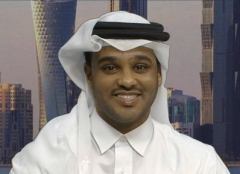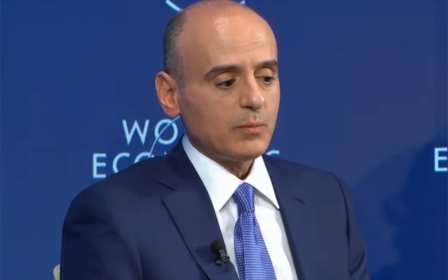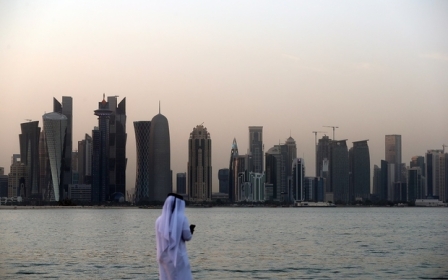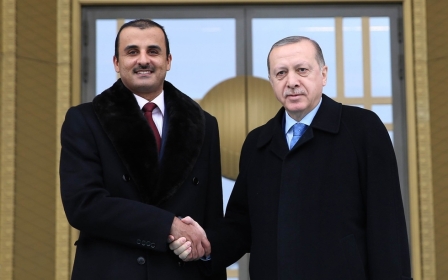Exiled Kuwaiti blogger defiant after conviction for opposing Qatar siege
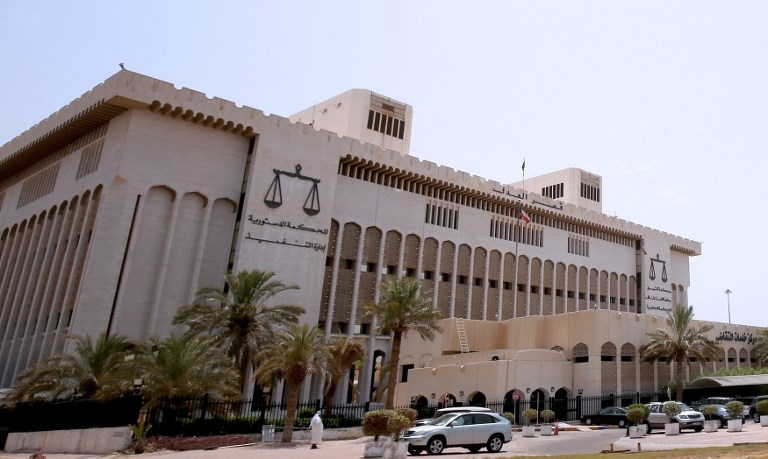
LONDON - Sentenced to 25 years in absentia back in his homeland of Kuwait for insulting Saudi Arabia, the Emirates and Bahrain, Abdullah al-Saleh seems largely philosophical about his newfound position of exile.
Sitting in a London cafe, the blogger and YouTuber says he has no regrets about what has led him to this stage.
Saleh travelled to Qatar after the Saudi-led coalition announced a blockade against Doha in early June to, he says, “explore what was happening about the blockade.” He paid for the trip himself, he is keen to stress.
Officially, the ongoing blockade is in response to charges, denied by Qatar, that it sponsors extremism, but has widely been seen as an attempt to encourage the small outspoken peninsular state to tow the Saudi line, and distance itself from Iran.
From the outset, Saleh says, the blockade struck him as a punitive measure, designed to whip Qatar into line.
“The whole country could be swallowed and become a colonial state, exactly as they have done with the Bahrainis,” he says.
Saudi Arabia, he says, wants Qatar to be "under their umbrella".
"They want to dominate, they say, 'We are the father of the Gulf, you should follow the father.'"
[The Saudis'] aim is not just to blockade Qatar but to change the ruler so they can control the wealth
- Abdullah al-Saleh
But it's about money, rather than just policy, he adds.
"Qatar can be a cash cow to fund their wars against Yemen and so forth.
"Their aim is not just to blockade Qatar but to change the ruler so they can control the wealth."
'Pissing off the Saudis'
Returning to Qatar a month later for a conference, and by then already tweeting and blogging his criticism of the blockade, Saleh then began receiving calls from back home.
“I received phone calls from home saying listen, ‘If you continue supporting Qatar the way that you do, you are simply pissing off the Saudis, the Emiratis and the Bahrainis – they will raise a case against you,” he recalls.
Kuwaiti authorities had relayed the message to his family, who called him in Doha.
“I told my lawyer, ‘I am going to continue doing what I have been doing, regardless of what’s going to happen.”
True enough, the charges started to appear. Raised by its ambassador in Kuwait, Saudi Arabia was the first to file a case.
Kuwait, along with other Gulf countries, has made it illegal for journalists and activists to criticise the rulers of neighbouring countries.
Kuwaiti authorities have invoked several provisions in the constitution, penal code, Printing and Publication Law, Misuse of Telephone Communications and Bugging Devices Law, Public Gatherings Law, and National Unity Law to prosecute journalists, politicians, and activists for criticizing the emir, the government, religion, and rulers of neighbouring countries in blogs or on Twitter, Facebook, or other social media
– HRW annual report
With an extradition treaty in place between Qatar and Kuwait, Saleh fled to London, where he has sought political asylum.
Saleh has now been convicted on five separate charges, the latest this week – two each for Saudi Arabia and the Emirates, and one joint Saudi-Emirati-Bahraini complaint.
“I wish it was Egypt too, it would look even better,” he says, light-heartedly, “four states instead of three.” Egypt has also supported the blockade against Qatar.
But why take such a vocal stance that would effectively render him unable to return home, for decades?
“I think it’s worth it,” he says. “It’s a simple matter of principles. If the blockade happened to Kuwait, wouldn’t we want someone from Qatar to support us?
“I think it’s an obligation, it’s not like me doing a favour to Qatar. If you can do something, then why not?
“You should sacrifice something, to have a greater benefit. And if my voice was that harmful to those states, then that is very good.”
Saleh said he was being assisted in exile by "the Qatari and Kuwaiti people".
Changing public opinion
At the beginning of the blockade, Saleh feels his criticism positioned him in the minority among Kuwaiti citizens.
“They were really supporting the coalition, because, as you know, we are much closer to the Saudis than the Qataris,” Saleh says.
I think the whole population is really worried about what happened to Qatar
- Abdullah Saleh, Kuwaiti blogger
“But most are now siding with the Qataris, as they feel the same thing could happen to them – they feel vulnerable.” His parents too have gone through a similar thought process, he says.
“At first, my family were the same as most Kuwaitis, they asked, ‘Why are you doing this, this is an issue between countries, why are you getting involved, you will lose everything.’
“But now they feel proud.
“I think the whole population is really worried about what happened to Qatar.”
Saleh is hopeful that the charges will be dropped at some point but, in the meanwhile, he is waiting to hear back from the Home Office about his political asylum claim. His temporary card states, “NO WORK, NO BENEFITS.”
“I miss my work,” he says. “But as long as you are free, even on another planet, it is better than being in prison.”
Bassam Khawaja, Lebanon and Kuwait researcher at Human Rights Watch, said the rights group is "extremely concerned" about the ongoing pattern of prosecutions targeting free speech in Kuwait.
Authorities there should drop charges in these cases, and amend laws criminalising speech in order to protect peaceful criticism of authorities
- Bassam Khawaja, Kuwait researcher at HRW
“Authorities there should drop charges in these cases, and amend laws criminalising speech in order to protect peaceful criticism of authorities.”
The Committee to Protect Journalists (CPJ) has also urged Kuwait to allow Saleh to return home without fear of imprisonment.
"It's bad enough that so many countries in the region casually hand down prison sentences for criticising domestic politics.
"Kuwaiti authorities are attempting to imprison a journalist for his views on other countries in the region," CPJ Middle East and North Africa programme coordinator Sherif Mansour has said.
"Kuwaiti authorities should allow al-Saleh to return home and work freely."
New MEE newsletter: Jerusalem Dispatch
Sign up to get the latest insights and analysis on Israel-Palestine, alongside Turkey Unpacked and other MEE newsletters
Middle East Eye delivers independent and unrivalled coverage and analysis of the Middle East, North Africa and beyond. To learn more about republishing this content and the associated fees, please fill out this form. More about MEE can be found here.


